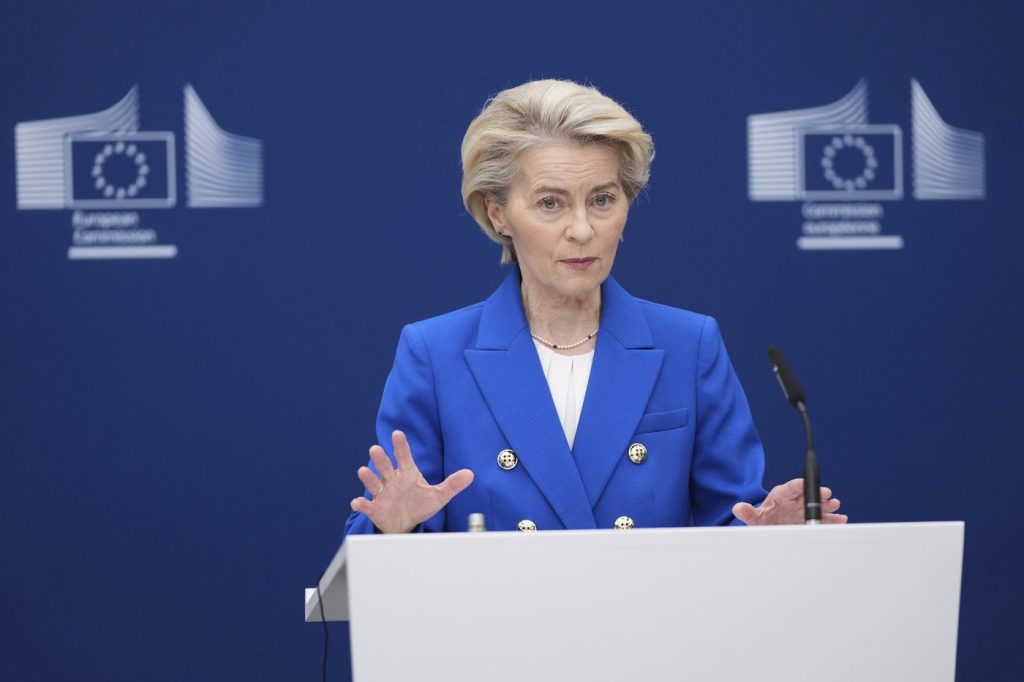BRUSSELS (AP) – European Commission President Ursula von der Leyen unveiled an ambitious 800 billion euro ($841 billion) defense initiative on Tuesday, aimed at strengthening the military capabilities of EU nations. This proposal comes amid growing political instability in Washington, where U.S. aid to Ukraine has been frozen, raising concerns about potential American disengagement from European defense efforts. Von der Leyen emphasized that the "REARM Europe" package is designed not only to enhance EU military readiness, but also to empower Ukraine in negotiations with Russia.
During her address, von der Leyen underscored the severity of the security threats facing the EU, stating, “I do not need to describe the grave nature of the threats that we face.” Historically, EU nations have been reluctant to significantly increase defense spending due to reliance on U.S. military support and the sluggishness of their economies. However, this has created challenges in rapidly boosting defense budgets as geopolitical tensions rise.
To facilitate increased defense spending among member states, von der Leyen proposed the relaxation of fiscal constraints imposed by the EU. This would allow countries to enhance their defense budgets without running afoul of the strict rules aimed at limiting deficits. She noted that if EU member states increased their defense spending to an average of 1.5% of their Gross Domestic Product (GDP), it could create approximately 650 billion euros ($683 billion) in additional fiscal space over four years. The funding will be supplemented by a loans program of 150 billion euros ($157 billion) dedicated to defense investments.
Von der Leyen highlighted the various areas in which military capabilities require enhancement, including air and missile defense systems, artillery, missiles, ammunition, drones, anti-drone technology, and cyber preparedness. These upgrades are crucial for EU nations, many of which currently allocate less than 2% of their GDP to military spending. NATO Secretary-General Mark Rutte has urged member states to accelerate their spending to over 3% as quickly as possible, underscoring the urgency of the situation.
This comprehensive plan will serve as the foundation for discussions at the emergency summit of the 27 EU leaders scheduled for Thursday. While strong commitments are expected, immediate decisions regarding funding or specific actions may not be forthcoming. The ongoing political developments in the U.S. play a significant role in shaping the EU's approach to defense, and member states are increasingly recognizing the necessity of a unified, robust military strategy in the face of evolving threats.










